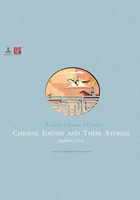
对牛弹琴 (duì niú tán qín)
Lute Before Cattle
It seems that no matter how different two languages may be, it is always possible to find matching expressions.
For example, when English speakers say “to beat your head against a brick wall” or “to cast pearls before swine,” the Chinese are very likely to quote the idiom Dui Niu Tan Qin, or “to play the lute to the cattle.”

This expression derives from a story that originally means one should address the audience in a language that it recognizes.
Mou Rong was a well-known scholar who lived in the late years of the Eastern Han Dynasty (25-220 AD) and had spent many years studying the Buddhist scriptures.
One day, the scholar gave a lecture on Buddhism to a group of Confucianists. During the lecture, Mou never used a single word from the Buddhist sutra. Instead, he repeatedly quoted paragraphs and expressions from the Confucian classics to explain the gist of Buddhism.
One guy in the audience interrupted Mou to ask why he never used a single Buddhist term in his lecture.
Mou explained by telling the gathered Confucianists a story.
“A long, long time ago, there was an accomplished musician who once played the lute to a herd of cattle. But, the cattle kept grazing around and showed no reaction to the music.
“After carefully observing the expressions of the cattle, the musician realized it was not that the animals did not hear the music but that they could not understand it.
“The musician then started to play the lute imitating the sound of gadflies, mosquitoes and houseflies. Immediately, the cattle stopped grazing and listened intently to the music.”
The scholar concluded the story by saying that for the same reason, he had used Confucianist terms to explain the Buddhist canon to a group of Confucianists.
Today, the idiom is still frequently used, but it refers to the act of whistling jigs to a milestone or reading Shakespeare to a group of illiterate log heads.